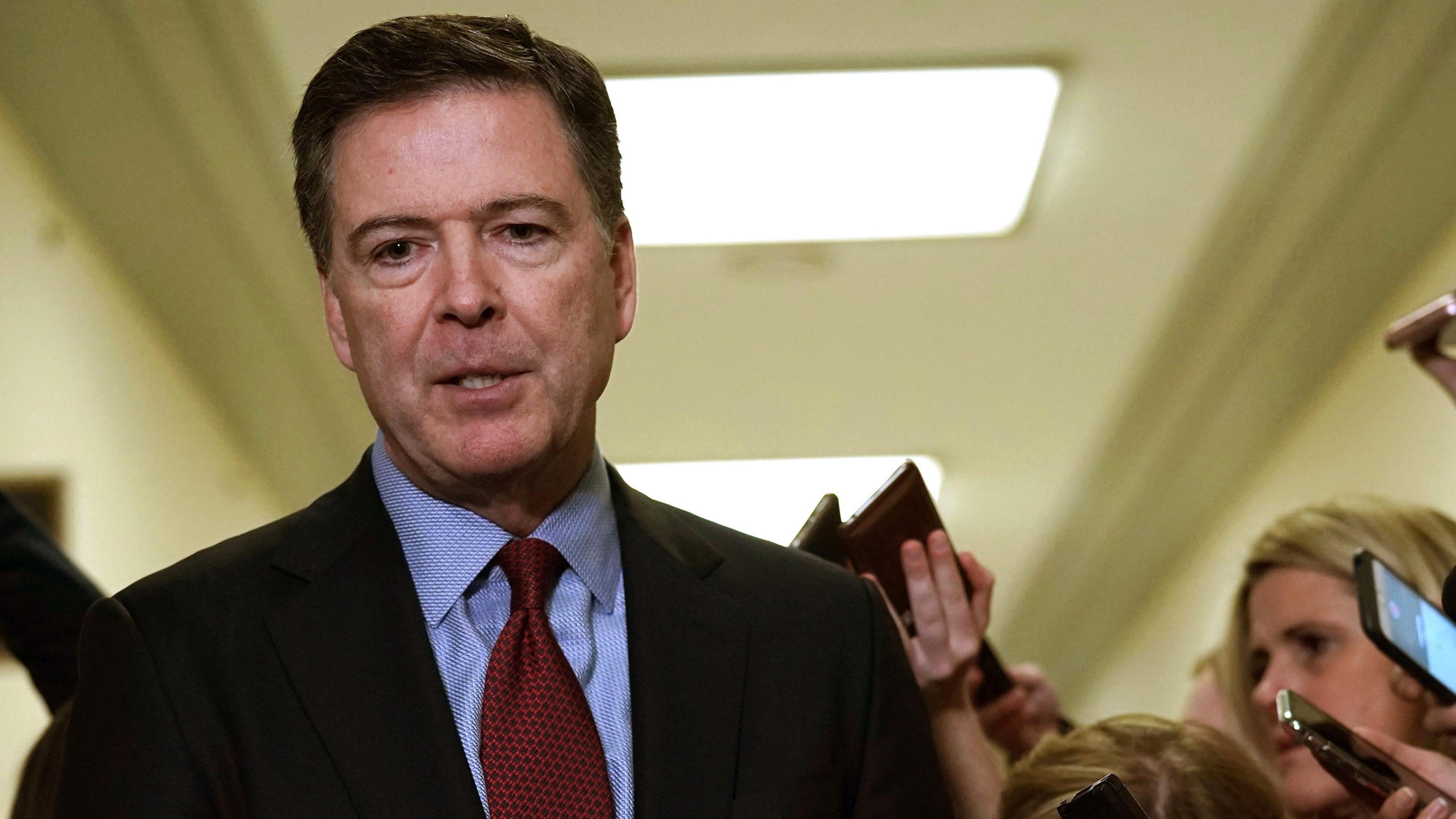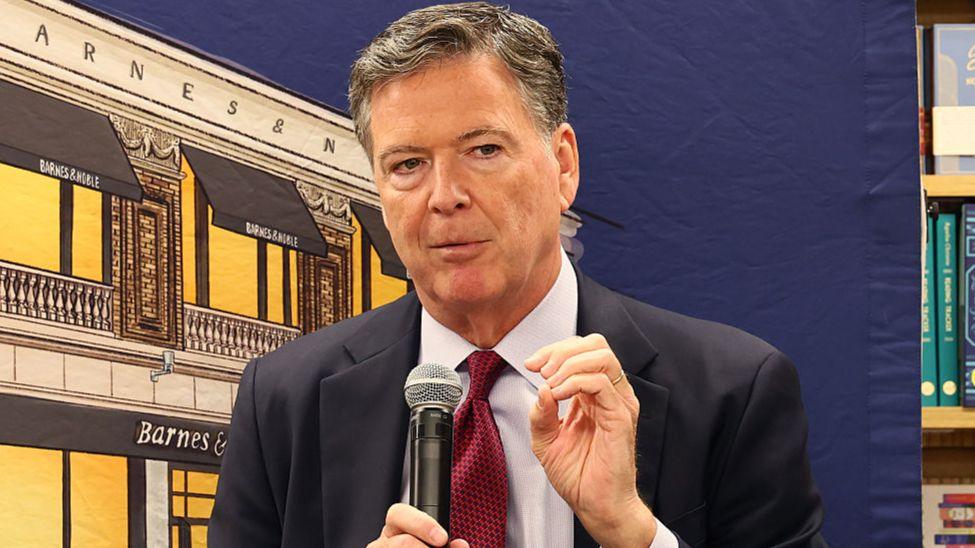Trump pushed to prosecute Comey, but his own actions could undermine the case
Watch: Comey denies authorising leak during 2020 hearing at centre of indictment
- Published
Soon after the US government charged former FBI Director James Comey with making a false statement to Congress and obstructing one of its investigations, President Donald Trump praised the indictment of his long-standing political foe and posted on social media that Mr Comey had told a "far-reaching lie".
Trump and Mr Comey have been locked in a public grudge match for nearly a decade, and the president has often said Mr Comey belongs in prison. Mr Comey, who has likened Trump to a mob boss and criticised him frequently, denies the charges.
But Trump's comments on the indictment, and his public pressure on the justice department to secure it, may have created a weakness in the case and made it harder for prosecutors to win a conviction in court, former federal prosecutors say.
They are warning that Trump's public attacks on Mr Comey and the unusual circumstances leading up to the indictment could cast doubt on the integrity of the process.
"This looks like a slapdash rush to the courthouse with one goal in mind: to achieve the president's aims in charging a perceived political foe with a felony," said Kevin Flynn, who served as a federal prosecutor in Washington, DC, for three decades.
The indictment against Mr Comey is just two pages long and comes with little information, making it difficult to assess the strength of the accusations or underlying evidence.
While some indictments can be short, the brevity of this one was "beyond unusual" for such a high-profile political case, said Marcos Jiménez, who served as the US Attorney for the Southern District of Florida under Republican President George W Bush.
To convict Mr Comey, the government needs to prove, beyond a reasonable doubt, that he knowingly lied to Congress. That would require showing a jury definitive proof that Mr Comey knew he was misleading Congress, such as witness statements, documentation and other forms of evidence.
"The best perjury cases involve corroboration," Mr Flynn said.
On Thursday, federal prosecutors asked a grand jury to indict Mr Comey on three charges. The jury decided there was only enough evidence to charge him for two counts, court records show.
The proceedings of grand juries, which only decide if a case against a person might succeed in court, are secret and sealed, meaning only a small group of people know what evidence was considered in charging Mr Comey.
Mr Jiménez warned that the bar prosecutors must clear for a grand jury is lower than at a trial, where a conviction hangs in the balance.
"The standard met at the grand jury level is: Is this likely to have happened?" Mr Jiménez said.
While charging a figure as high-ranking as Mr Comey was unusual, Annemarie McAvoy, a professor at Columbia Law School, told the BBC that there was a history of indicting officials for lying to lawmakers and obstructing congressional investigations. She added that it was possible, although could be difficult, to win a conviction.
Mr Comey has been accused of lying when he was asked during a 2020 congressional hearing if he authorised leaking to the press information related to an FBI investigation.
"If there are others who are willing to come forward and say, 'yes, I got the information from James Comey,' then potentially they certainly have a case," Ms McAvoy said.
Questionable circumstances surround the indictment
Over the last week, Trump has used his Truth Social platform to openly call for the prosecutions of Mr Comey and other figures who have opposed him.
When the US Attorney for the Eastern District of Virginia refused to carry out the prosecutions and resigned, Trump installed a prosecutor from his own orbit to the office, Lindsey Halligan, who then sought the indictment.
Several legal experts told the BBC that Trump's actions could provide an opening for Mr Comey to move to dismiss the case on the grounds of selective or vindictive prosecution.
After Mr Comey's indictment, Trump posted on Truth Social calling him a "dirty cop" and writing that a "big price must be paid" for the former FBI director's alleged false statements.
Before, on 20 September, Trump had complained in a lengthy post that "nothing is being done" to take legal action against some of his political opponents, including Mr Comey. They were "guilty as hell," he declared.
"The President's social media posts and statements are a major problem for the prosecution, both legally and practically," said Jeffrey Bellin, a professor at Vanderbilt University Law School.
"From the outside, it looks like this prosecution was brought at the direct request of the president, over the objections of the professional prosecutors against a political opponent. And this all happened in public view."
Trump, however, denies any political motive.
"It's about justice, not revenge," he told White House reporters on Friday. "It's about justice."
Related topics
- Published27 September

- Published8 October
